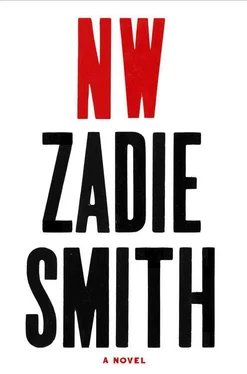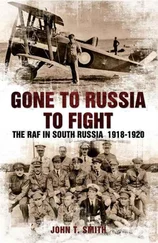79. The end of history
When Natalie now thought of adult life (she hardly ever thought of it) she envisioned a long corridor, off which came many rooms — each with a friend in it — a communal kitchen, a single gigantic bed in which all would sleep and screw, a world governed by the principles of friendship. The above is a metaphorical figure — but it is also a basically accurate representation of Natalie’s thinking at that time. For how can you oppress a friend? How can you cheat on a friend? How can you ask a friend to suffer while you thrive? In this simple way — without marches and slogans, without politics, without any of the mess you get ripping paving stones out of the ground — the revolution had arrived. Late to the party, Natalie Blake now enthusiastically took her good friend Leah Hanwell’s advice and started hugging strangers on dance-floors. She looked at the little white pill in her palm. What could go wrong, now we were all friends? Remember to carry a bottle of water. Anyway, it was all already decided. Don’t chew. Swallow. Strobe lights flash. The beat goes on. (I will be a lawyer and you will be a doctor and he will be a teacher and she will be a banker and we will be artists and they will be soldiers, and I will be the first black woman and you will be the first Arab and she will be the first Chinese and everyone will be friends, everyone will understand each other.) Friends are friendly to each other, friends help each other out. No one need be exceptional. Friends know the difference between solicitors and barristers, and the best place to apply, and the likelihood of being accepted, and the names of the relevant scholarships and bursaries. “You choose your friends, you don’t choose your family.” How many times did Natalie Blake hear that line?
80. Ideology in popular entertainment
In case anyone was in danger of forgetting, the most popular TV show in the world pressed the point home, five times a week.
81. The Unconsoled (Leah’s sixth visit)
“Oh Jesus I just saw Rodney in Sainsbury’s!” said Leah, distraught, dropping two shopping bags on the table. “I looked in his basket. He had a meat pie and two cans of ginger beer and a bottle of that hot sauce you put on everything. I came up behind him in the queue, and he pretended he’d forgotten something and hurried off. But then I saw him a few minutes later at a far end queue and he had exactly the same four items.”
82. Milk round
A festive, chaotic scene, as well attended as the Fresher’s Fair, although this time the banners were not homemade, and instead of Tolkien societies and choral clubs they had printed upon them the melodic names of law firms and the familiar names of banks. Girls in cheerleader outfits bearing the logo of a management consulting firm went round the room giving out little pots of ice cream and cans of energy drinks. Natalie Blake twisted the can in her hand to read the tag that ran round it. Claim Your Future. She dug into the ice cream with a little blond wood panel, and watched the green balloons of a German bank slip from their tethers and float slowly up to the ceiling. She heard Rodney’s voice coming from somewhere. He was three tables along, sitting with monstrous keenness on the very edge of a plastic chair. Opposite him, an amused man in a suit and tie made notes on a clipboard.
83. Mixed metaphors
A year and a half later, when everyone had returned or else moved to London and Natalie was studying for the bar, Rodney Banks sent a letter c/o of Marcia Blake that began: “Keisha, you talk about following your heart, but weird how your heart always seems to know which side its bread is buttered.” Frank De Angelis took this letter from Natalie Blake and kissed the side of her head. “Poor old Rodney. He’s not still trying to become a lawyer, is he?”
84. Groupthink
A television advert for the army. A group of soldiers leap from a low helicopter to the ground. Chaotic camerawork: we’re to understand these men are under attack. They run through a harsh landscape of wind and dust, through a clearing, emerging at the edge of a chasm. The wooden bridge they hoped would take them across is half-destroyed. The broken slats tumble into the ravine below. The soldiers look at the ravine, at each other, at the heavy packs they carry.
85. Lincoln’s Inn
A crowd of new arrivals in eveningwear sat watching this advert, slouched over chairs and sofas, making boisterous conversation. Natalie Blake was a new arrival too, but more shy. She stood at the back of the rec room, trying to busy herself at the refreshment table. Now some text appeared, branded with hot irons into the screen. It was accompanied by the voice of a drill sergeant:
IF YOU’RE THINKING HOW DO I GET ACROSS, THE ARMY’S NOT FOR YOU.
IF YOU’RE THINKING: HOW DO WE GET ACROSS, GIVE US A CALL.
“I’m thinking: how are you getting across.”
He was pointing at the television, and all around him people were laughing. She recognized his voice at once, its louche trace of Milan.
86. Style
The dreadlocks were gone. His dinner jacket was simple, elegant. A starched pink handkerchief peeked out of the top pocket and his socks were brightly clocked with diamonds. His Nikes were slightly outrageous and box fresh. He no longer seemed strange. (Any number of rappers now dressed like this. Money was the fashion.)
87. The first Sponsorship Night dinner of the Michaelmas term.
Natalie Blake was “captain” of her section. She was unsure what this meant. She stood behind her dining chair at the appointed table and waited for her sponsor, a Dr. Singh. She looked up at the vaulted ceiling. A white girl in a satin gown came and stood next to her. “Lovely, isn’t it? That majestical roof fretted with golden fire! Hello, I’m Polly. I’m in your team.” Next to Polly came a boy called Jonathan who said that “captain” only meant the food was served to the left of you. Portraits of the venerable dead. Heavy silverware. Fish forks. The Benchers filed into hall in their black flapping gowns and bowed. A Latin grace began. Bored, contented voices repeated alien words.
88. The invention of love: part two
Natalie Blake flattened her thick linen napkin over her lap and spotted Frank De Angelis running late, moving toward her table, spotting her. He looked devastating; more like Orfeu than ever. She was flattered by his reaction: “Blake? You look great! It’s great to see you. Oh Captain my captain…” He did a little bow and sat down extremely close, thigh to thigh, examined the menu card, made a face. “Cottage pie. I miss Italy.” “Oh, you’ll survive.” “You two already know each other?” asked Polly. And there was indeed something intimate about the way they spoke to each other, heads close, looking out across the room. Natalie fell so easily into the role she had to remind herself that this intimacy had not existed before tonight. It was being manufactured at this present moment, along with its history.
The bad wine flowed. An ancient Judge rose to give a speech. His eyebrows sprung owlishly from his head, and he did not neglect to mention Twelfth Night ’s first performance or paint a bloody picture of marauding peasants burning law books: “… and if we look to Oman’s translation of the Anonimalle Chronicle , we find, I’m afraid, a somewhat dispiriting portrait of the profession… For, upon being cornered in our own Temple Church, our not-so-noble predecessors did little to deter the angry mob. If I may quote: It was marvelous to see how even the most aged and infirm of them scrambled off, with the agility of rats or evil spirits… These days I can reassure you that beheading — in London at least! — is gratifyingly rare, and abuse of lawyers generally limited to…” Natalie was enthralled. The idea that her own existence might be linked to people living six hundred years past! No longer an accidental guest at the table — as she had always understood herself to be — but a host, with other hosts, continuing a tradition. “And so it falls to you,” said the judge, and Frank looked over at Natalie, trying to catch her eye and yawning comically. Natalie folded her arms more firmly on the table and turned her head toward the judge. As soon as she’d done it, she felt it was a betrayal. But who was Frank De Angelis to her? And yet. She looked back at him and raised her eyebrows very slightly. He winked.
Читать дальше











